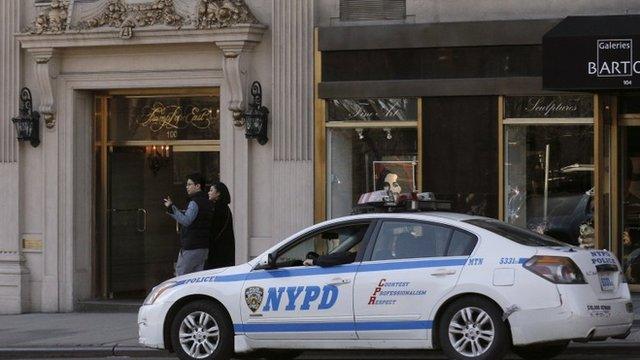Texting drivers: Penalty points and fines to double
- Published
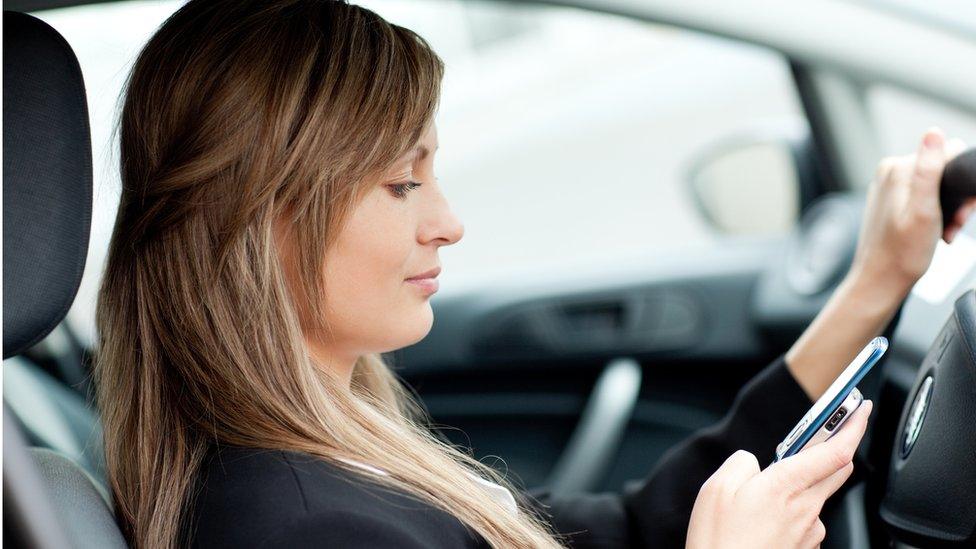
Drivers caught using handheld mobile phones in Britain are to face "much tougher penalties", with fines and points doubling, the government says.
Under new rules expected to come in next year, drivers will get six points on their licence and face a £200 fine.
Newly qualified drivers could be made to retake their test the first time they are caught.
But Darrell Martin, whose brother was killed by a driver on his phone, said the penalties did not go far enough.
The new rules, which will apply to England, Scotland and Wales, could also see more experienced drivers going to court if they offend twice, and facing possible fines of up to £1,000 and at least a six-month driving ban.
The penalties, which will increase from three penalty points and a £100 fine, will be accompanied by a high-profile government Think! campaign.
The Department for Transport said it expected the changes to take effect in the first half of 2017.
In Northern Ireland, drivers are currently given three penalty points and a £60 fine for the offence.
The Department for Infrastructure said there were no plans to change this, but it "will continue to monitor changes being made in Britain to see what can be learned".
'Absolutely pointless'
Mr Martin told BBC Radio 5 Live: "For the majority of people it will just be another expensive [bit] of motoring, it's not really a deterrent is it?
"Six points isn't the same as the immediate ban with drink driving."
His brother, cyclist Lee Martin, was killed when he was hit by a van driven by Christopher Gard in 2015.
Earlier this month, Gard, 30, from Alton, Hampshire, was jailed for nine years after admitting causing death by dangerous driving. The 30-year-old had at least six previous convictions for using a phone at the wheel.
Darrell Martin describes how his brother was killed by a texting driver
"If you can't live by a few rules that are not going to make you into a killer, then can you not drive please, because it's not much to ask," Mr Martin said.
"Just put your phone down... the text message that killed my brother, the bloke was writing about he was going home to meet his mate and take his dog for a walk.
"That's the end of my brother's life... it's pointless, absolutely pointless."
A lorry driver who fatally crashed into an off-duty police officer's car in June 2014 was jailed on Monday.
Danny Warby, 28, received six years in prison after his 13.6-tonne vehicle hit Det Con Sharon Garrett in Cambridgeshire, shortly after he had opened a text message. Mrs Garrett was pronounced dead at the scene.
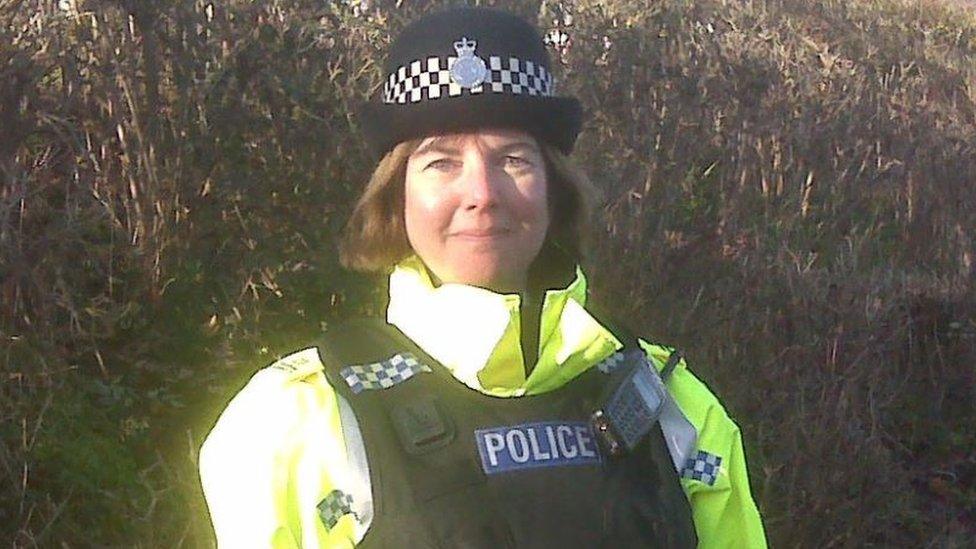
Det Con Garrett's family told the court of their devastation
Earlier this week, a survey by the RAC suggested nearly a third of UK motorists text, make calls and use apps while at the wheel, with the number having risen since 2014.
Of the 1,700 people questioned by the motoring organisation, 14% said they had even taken photos and made films while driving.
Department for Transport figures show that a driver impaired or distracted by their phone was a contributory factor in 492 accidents in Britain in 2014, including 21 that were fatal and 84 classed as serious.
Jane Allen's son Shaun paid "the ultimate price" when he died in a crash after sending a text while driving
Transport Secretary Chris Grayling said: "It may seem harmless when you are replying to a text, answering a call or using an app, but the truth is your actions could kill and cause untold misery to others."

Analysis
By Richard Westcott, BBC transport correspondent
It has been illegal for years but it is still common to see a driver using a handheld mobile at the wheel.
So the government is trying to send out a message, to make illegal phone use as socially unacceptable as drink-driving or not wearing a seat belt.
One of the big questions now though, is how will it be enforced.
The RAC says the problem has snowballed in recent years, partly down to a cut in traffic police numbers. Cameras won't catch you using your phone.

AA president Edmund King said the increased penalties were "radical" and added: "If we are to change the attitudes of young drivers maybe it has to be that harsh."
RAC road safety spokesman Pete Williams said it was important for people to see that laws were being enforced.
"The decline in the numbers of dedicated road traffic police has only heightened the feeling that those who use a handheld phone while driving simply get away with it," he said.
Louise Ellman, Labour MP and chairwoman of the Transport Select Committee, also said detection rates needed to be higher.
Jayne Willetts, of the Police Federation of England and Wales, which represents rank-and-file officers, said: "Unfortunately, with fewer officers out on the roads, more of these offences are going undetected."
Neil Greig, RoadSmart director of policy and research at the Institute of Advanced Motorists, said he "strongly" supported a mobile phone awareness course as an automatic option for first offenders.
- Published15 September 2016
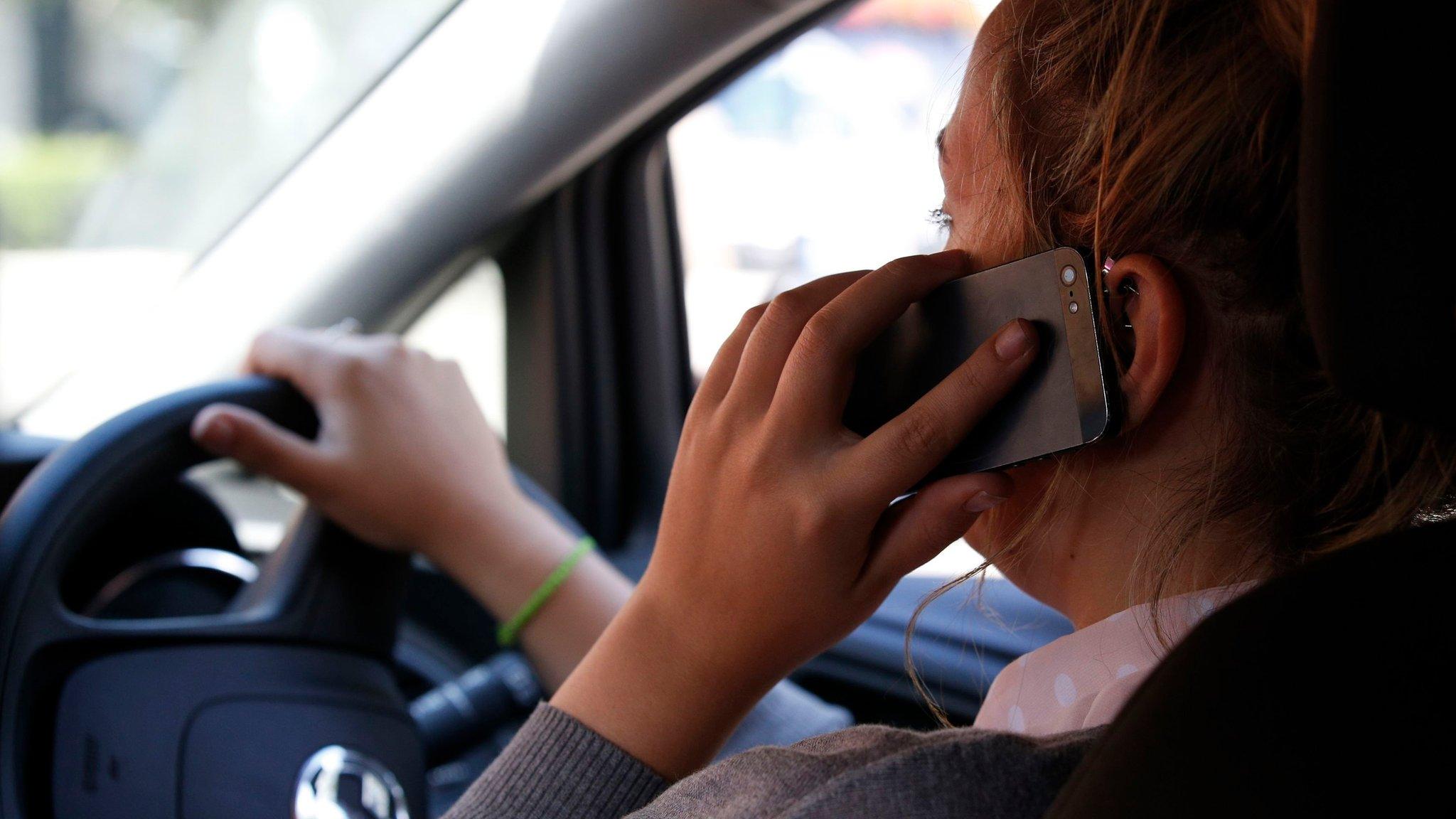
- Published12 September 2016

- Published7 September 2016
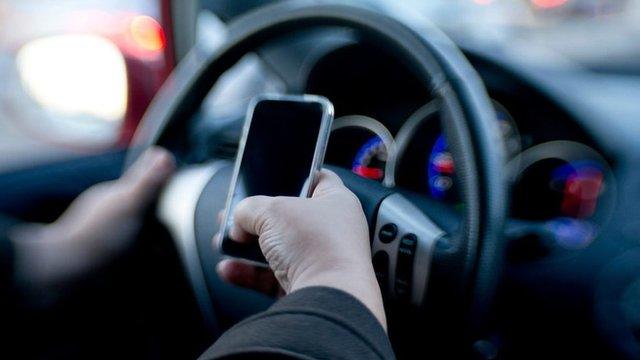
- Published7 September 2016

- Published31 March 2016
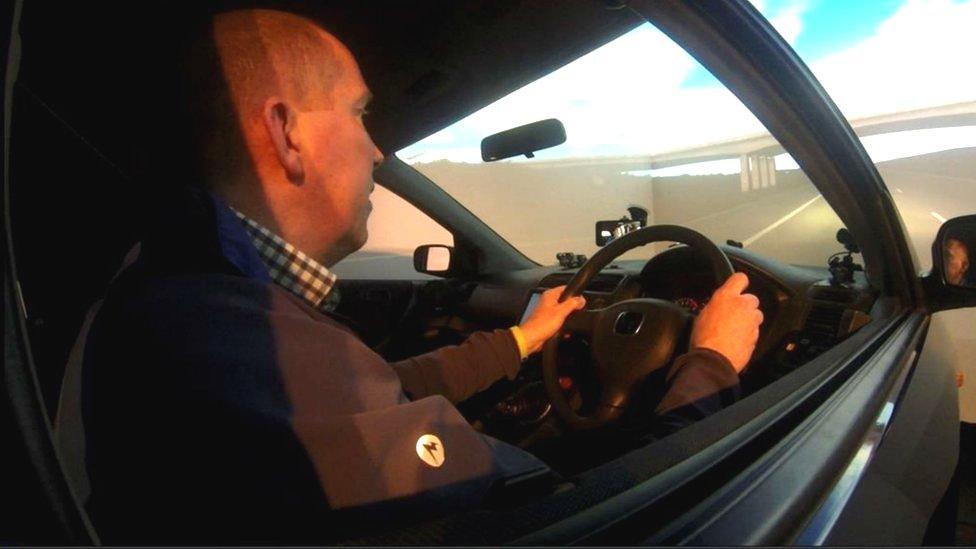
- Published20 December 2015
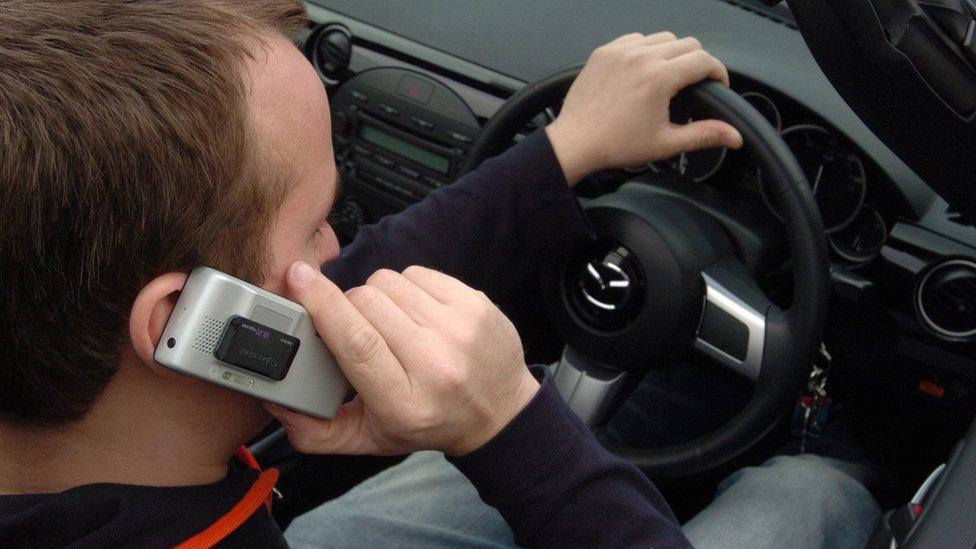
- Published17 April 2015

- Published23 May 2016
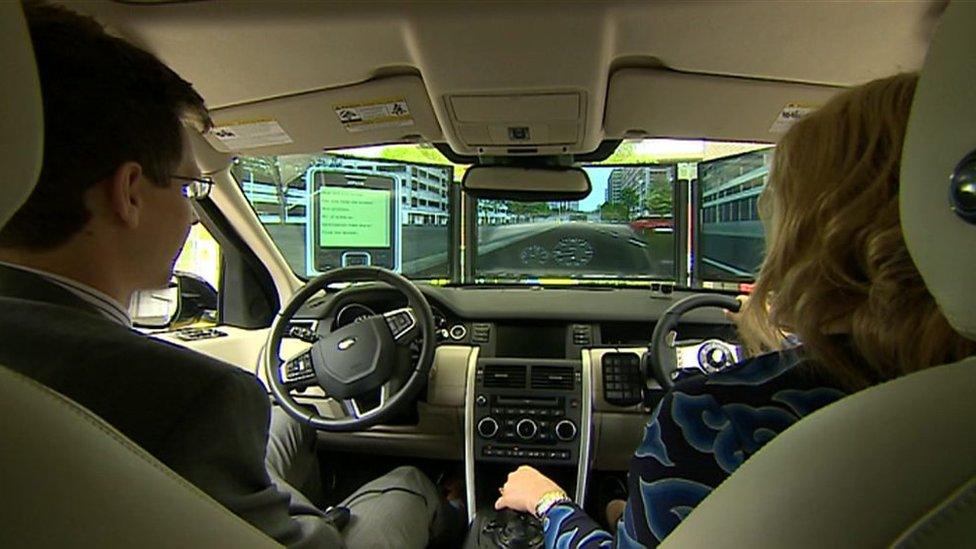
- Published12 April 2016
